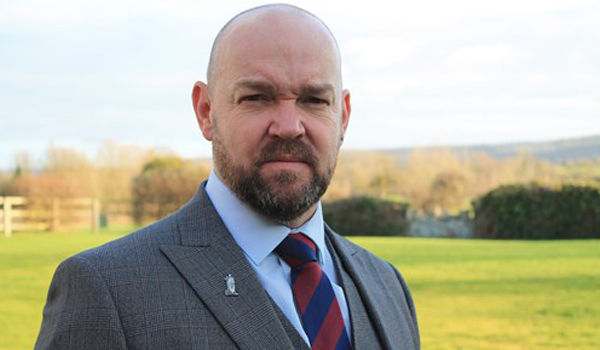Difficult conversations needed but force not ‘institutionally racist’, says federation
Avon and Somerset Constabulary must have difficult conversations about the issue of racism, but the force is “not institutionally racist”, says its federation.
Making declarations that it is “does nothing to drive change or amend culture”, said Avon and Somerset Police Federation chair Mark Loker.
He was responding to comments made by Chief Constable Sarah Crew, in which she said that the force was institutionally racist, although adding to her officers “this does not mean that you, personally are racist” ( see https://www.policeprofessional.com/news/avon-and-somerset-constabulary-institutionally-racist-says-chief-constable/)
Mr Loker said that he recognises that anyone who listens to the chief constable’s message will read into this that officers and staff working for the force were indeed considered racist – a notion he disagreed with.
He said: “If this is really about the institution, then we have to recognise that people write processes, people adhere to processes and when we put processes before people, we are feeding a false narrative.”
Mr Loker cited a report by the Commission on Race and Ethnic Disparities, in which it stated that misapplying the term racism has “diluted its credibility” and thus undermined the seriousness of racism.
He said: “Where ‘institutional racism’ is used too casually as an explanatory tool, it can also lead to insufficient consideration of other factors which are also known to drive such differences in outcomes. ‘Institutional racism’ is not the consequence of crime and should not be considered as such.”
Mr Loker added: “If accusations of ‘institutional racism’ are levelled against institutions, these should – like any other serious accusation – be subject to robust assessment and evidence and show that an institution has treated an ethnic group differently to other groups because of their ethnic identity.”The commission warned that there are consequences to the misapplication of the term and it can give a false perception or narrative.
“I contend that by our chief declaring Avon and Somerset as ‘institutionally racist’ this will create a false narrative and actually drive a divide between our officers and the communities this is intended to assist.
“I fully agree that policing should be anti-racism. Racism has no place in a modern society; it is singularly divisive. But that understanding does start at an individual level and perpetuates throughout groups, cultures and organisations.
“It is not good enough to simply say that someone who is not racist may take responsibility for their own behaviour, but they are not taking responsibility for the behaviour of others.”
Mr Loker said he agreed that is no longer acceptable to be a “passive bystander”, to observe racist behaviour and to do nothing.
“But if this declaration is to promote confidence in our black and ethnic minority communities, what does it actually do?” he added. “It does not, in my view, promote brave conversations, it in fact stunts any conversation and becomes a label, nothing more.
“We do not always get it right. But, in the absence of any data that supports this position and states that we are ‘institutionally racist’, this is nothing more than virtue signalling.”
Regarding disproportionality around stop and search, Mr Loker said: “I do not see data or believe that the reason our members, our brave officers, stop and search anyone is solely based on the colour of their skin.
“If we are legitimate in our aim to combat racism and to rebuild or enhance confidence in our constabulary, then we have to be credible, brave and honest in our conversations. Not placate and feed a false narrative because that is what we believe some communities want to hear.
“To tackle the fact that black communities have the lowest trust but also the highest victimisation, we need to talk about these issues. To explain our processes and work with those communities to explain our actions, our powers and necessity for using powers such as stop and search, not condemn them without basis.”
Mr Loker concluded: “It is not helpful to make statements without proper basis or evidence based reviews that in our opinion will do nothing more than make what is already a hard job, harder.
“Sadly it plays into the hands of political ideology and does not go to the heart of the issue.
“People drive change, not processes.”


